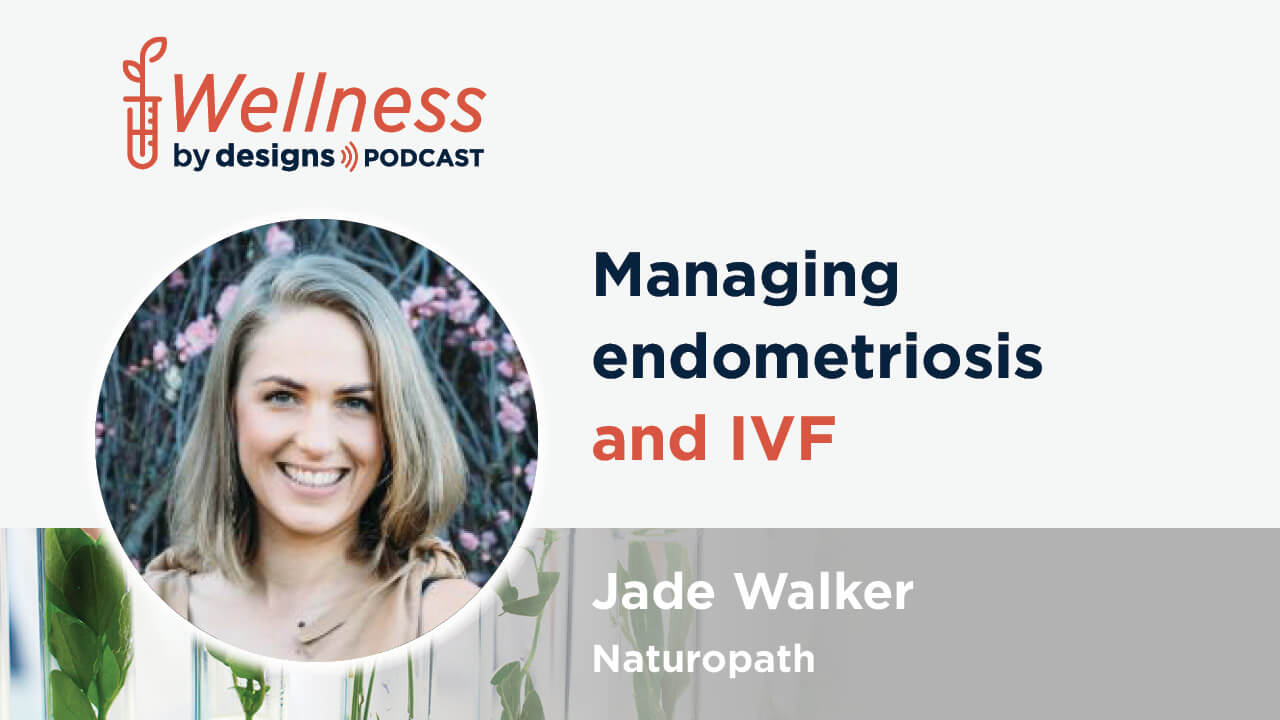

Managing Endometriosis and IVF
Joining us today is Jade Walker, a Naturopath who specialises in Women’s Reproductive issues, gut issues and chronic immune disorders issues.
Today we’ll be discussing How to manage Endometriosis and IVF.
About Jade Walker
As a degree-qualified Naturopath who’s worked amongst many health professionals, Jade has been able to help many people recover and live lives they didn’t think were possible.
Personally, she experienced a long-term battle with terrible period pain, gut issues and wavering moods before finally realising she had SIBO and endometriosis. She went on for years (in fact 18 years ’til diagnosed endo), not getting answers. Multiple visits to the ED, doctors and even a laparoscopy, and every time she was told everything’s “normal”.
It wasn’t until studying a bachelor of health science in Naturopathy that Jades eyes opened to the possibilities of 1) what her condition could be and 2) what can actually be done to heal.
So after researching, healing herself, and helping hundreds of clients, Jade now dedicates her life’s purpose to help other women be able to experience a better quality of life.
P.S. my second laparoscopy with an advanced trained excision surgeon did indeed confirm I had endometriosis.
Connect with Jade:
Website: https://www.jadewalker.com.au/naturopathy/
Email: info@jadewalker.com.au
Facebook Group: Natural Medicine for Endometriosis
Instagram: @jadewalkerhealth
Transcript
Introduction
Andrew: This is “Wellness by Designs.” And I’m your host, Andrew Whitfield-Cook. Today we’re chatting with Jade Walker, a naturopath who specializes in female reproductive issues, gut issues, and chronic immune disorders. But today we’re talking about endometriosis and IVF. Welcome to “Wellness by Designs,” Jade. How are you?
Jade: I’m really well. Thank you, Andrew. It’s such a pleasure to be on here.
Andrew: You’re really well after a little bit of a scale with one of your bubbies.
Jade: Yeah, look, newborns definitely keep you on your toes. But she is okay now, thankfully.
Andrew: That’s good. That’s good. So let’s first talk about endometriosis. Now, this condition carries, do I say less than ideal, do I say abhorrent time to diagnosis. Tell us about your journey, and what you found with many of your patients.
Jade: So I first got my period when I was 11 years old. And it wasn’t long after that that I started to experience extreme dysmenorrhea. And it’s not just like, “Oh, put a heat pack on it, that’ll be fine.” It was really doubled over, howling in pain. It would last for hours. And sometimes painkillers wouldn’t quite get on top of it. And I even have had a couple of trips to the hospital as well, because sometimes it’d be so bad that I just didn’t know what else to do, and it essentially feels like you’re dying. That’s how painful it is.
So it actually wasn’t until I was 21 years old that my mom said, “You really need to get this investigated. Maybe it’s endometriosis.” So I went to my gynecologist, and this was when I was living in a small town called Whyalla in South Australia. So naturally, they aren’t the best place for specialists in endometriosis. And to be honest, I was really fobbed off. I went to my GP once again for period pain, as I had done many times before, being offered the pill, being offered Ponstan. And I said, “I want to investigate the endo.” And they really tried to downplay it as if it’s probably not that. Anyway, and I said, “I don’t care. I want a referral to a gyno.”
So I went and saw my gynecologist, and then even she wasn’t really keen to investigate it either. And she was just really trying to make me feel like it was risky going in, and and even if there was anything, we’ll burn it off. And we’ll get to ablation vs. excision in a moment, I’m sure. But she also said, “That might affect your fertility.” Anyway, I was at the point where I just really, really wanted to get this investigated. I didn’t care. So we had the laparoscopy. Wake up, she said, “No endo was found.” So that led me down the wrong pathway for many years because I thought I didn’t have endo. And I was left with thinking, “What is wrong with me then? Why on earth do I have such extreme period pain?”
And then when I went through my degree, my Bachelor of Health Science in naturopathy, I thought, “Surely I’m going to find answers in this, surely there’s something else that I’m missing.” And really, it kept coming back to endo. And then I started hearing stories of people who did have endo missed because we now understand that endometriosis lesions come in all different shapes, colors, and sizes, and appearances. They can hide behind structures, and they’re not just localized to the pelvic cavity either. So that piqued my interest. But then I also was let down when people were kind of indicating, “You have to have private health to get the best surgeons.” Now that’s not true, but that is what a lot of people are led to believe. And I was a pretty broke uni student, definitely didn’t have private health. And I was thinking in my mind, “I’m gonna have to fork out thousands of dollars to get this amazing surgery.” So I just left it for a while.
But then when I started practicing, and I started seeing endo in clinic. I naturally had to learn a lot more about the condition, and learn more about how the surgeons work, and all those kinds of things. It wasn’t until…where are we now? Probably about two years ago now, that my husband and I tried…we wanted to start trying to conceive. And I had a period one day. One thing led to another, I finally thought, “I need to get this re-investigated.” So that’s when I went searching for what’s known as an advanced trained excision surgeon in endometriosis. And within the first appointment of going to see him, he did what’s called a transvaginal ultrasound, but he is actually highly trained in looking for certain types of endo that may appear on these ultrasounds.
Now, I will caveat that that, obviously, not all types of endo can be picked up on an ultrasound, and not all sonographers are trained to pick it up. So a lot of people have the ultrasound, and they’re told, “Oh, you don’t have endo,” but that is completely false, because you cannot just definitively say yes or no. However, this particular surgeon was really skilled, and he said straightaway, “Yep, I can see that there’s endometriosis on the uterosacral ligaments.” And I just started crying, because it had been 17 years since I got my period, since I started experiencing such bad period pain, and to finally be validated was so overwhelming for me. I was actually so excited.
And so from that point forward, within a month I had my surgery. And sure enough, yes, they found some lesions there. And if you look at it, to an untrained eye, they’re like, “There’s nothing there.” It doesn’t look like your classic chocolate cyst with lots of adhesions. It was much different. So anyway, we had it removed. And from that point forward that absolutely lit my fire. And I just got on my soapbox, and just telling the whole world about endo, and the things that can go missed. And now that’s predominantly the clientele who I save.
Andrew: Can I go back to your childhood, or teenage years? Now, you got your first period at 11. And it wasn’t long after there that you experienced severe pain. That must have a massive impact on self-esteem, socialization, development, interpersonal relationships, how you’re seen by your peers at school. “Oh, they’re just trying to get out of PE,” I said this of girls who were in pain. And it’s something that maybe we need to be taught about endometriosis from a very early age, that it’s not bad, it’s not in their heads. They’ve actually got something wrong with them. But the problem is this darn condition is so hard to pick up. And worse, let’s talk about your journey, you weren’t even believed. So 17 years is such a long time. So let’s move on from there. No, forgive me. To answer that question, tell us a little bit about what you see in particularly younger women who have been devastated not just by pain, but by the psychosocial aspects of this disorder.
Jade: Yeah, everything from obviously the classic, missing time off school, missing time off work. But it affects relationships significantly, because not only are they in pain, they may need to…some people can’t even walk because it’s so bad, or it affects their sex, of course, because painful sex is one of the classic symptoms. It’s very insidious in the way that it affects so many aspects of people’s lives. And also I do see, as well, in some of the support groups, people saying things such as their family doesn’t believe them, or they just think they’re over-exaggerating, or they say…this is something that you never say to someone with endo, is, “Oh, just take some Panadol.” Things like that can just be so infuriating. Yeah, there are so many aspects, and mental is one of them, absolutely.
Andrew: Yeah, sure. So how do women present to you? What’s your major patient population? And who and how do you refer through for thorough investigation?
Jade: Yeah. So there would be two main categories, because initially, it was all the women with dysmenorrhea. And whether they’d actually been diagnosed, some of them hadn’t even heard of endo. So we had to talk about that. So there would be that category of the significant dysmenorrhea, we have to try and work to remove that inflammation, and working on gut health because we know there’s such a connection between the gut and endo. But now, especially since sharing my IVF journey, and fertility journey, I also get that collection of women as well.
And interestingly, quite often when it’s endo and fertility, or infertility, quite often it will be that they were asymptomatic endo patients, so they may have actually never had painful periods. They didn’t even have painful sex. And they were trying to conceive for several years. And it wasn’t until someone said, “Okay, last resort, let’s do a laparoscopy, have a look at the anatomy.” And that’s when they were like, “Oh, wow, you’re riddled with endometriosis.” And it would be stage four. So it’s actually gone into…I’ve seen women have it on their diaphragm. Obviously, we know that it can grow on your intestines. So there’s just so many aspects to consider.
So yeah, there’s those who just want better quality of life. They don’t want to be in pain all the time. And then there are those who are trying to have a baby.
Andrew: Something confuses me about the staging. We know that the pain experienced by women with endometriosis is…counterintuitive, sorry, is the word, is the opposite of how severe the staging would be. So here’s a question, is the staging relevant? Or do we need to be looking further at the types of lesions rather than the chocolate, the serious ones, and things like that?
Jade: Yep, that is actually something that is being looked at, at the moment. Forgive me, because I haven’t been practicing for now five or six months, being on maternity leave, so it could have changed since then. But from the last time I knew, they were looking at changing that, because it’s not helpful to people to be stage one, and make it feel like that downplays their symptoms. And I always would get women say to me, “Oh, I only had stage one, but my pain is so and so.” And I’m saying to them, “Mine was stage one, but pain was off the charts.” So staging isn’t actually helpful in that matter, except for just understanding how far has it spread in the body, really, and how about are the lesions. Yeah.
Andrew: Let’s talk about that pain, because you’ve said some women, many women aren’t believed. And it is very hard to look into somebody’s soul, and look at how much pain they’re in. I mean, look at mental pain, for instance. But can you try and describe to us blokes, and us people out here who don’t have endo, what that pain is like? Like sharp, stabbing, throbbing, stretching? Can you take us through what your feelings are? What your patients report?
Jade: I can only imagine it must be like being kicked in the nuts for a couple of hours, or several days. I mean, it’s like…
Andrew: Oh, only a couple of hours. Oh.
Jade: Yeah, that’s it. And again, it varies for everyone. Sorry, I’m only just picking up on your reaction there with that delay that just occurred. So it does vary for everyone, again, and depending where it is, and all those kind of things. However, the general descriptions are usually stabbing, sometimes burning, which could also be associated with adenomyosis. Yeah, what else? Tugging, electric shock type pains. Sometimes it can send nerve pains down the leg for people. It’s just…it’s hard to actually explain how intense it is. And it just feels like, when you’re in the thick of it, that nothing is going to make it better except time. And for some people, the pain is only during bleed, during the period. But for some people, it’s actually every day. And I do see many women like that who are in pain every single day. Obviously, it peaks around that period. Sometimes it peaks around ovulation as well. And they are just trying to live with this chronic pain every day.
Andrew: So let’s now delve into infertility. How does endo affect infertility? Fertility, sorry.
Jade: Yeah. So yeah, yeah, I mean, the statistics, it’s around 35% to 50%, last time I checked, of people with endo who are have infertility. And then it’s actually around about the same percentage of people with infertility as a whole who had endometriosis. So it absolutely plays a huge role in whether someone can conceive. Interestingly, as well, so the current time to conceive, the first month of…so say someone goes to try and have a baby, and they fall pregnant in the first month. The general population, that’s up to 20% of that happening. Whereas people with endometriosis, it’s about 2% to 10%. So there’s a significant reduction in being able to fall pregnant.
And the key reasons there is, you’ve either got the structural component, so where there’s actually adhesions and lesions literally impairing the sperm from traveling to the egg, or impairing the embryo from implanting. Or you’ve got more of that chemical component, so you those high inflammatory cytokines, and essentially making it a really hostile environment for anything to occur, really. So those are the two major components that you need to be looking at.
And of course, you did actually ask me earlier, and I didn’t answer the question about how to get the diagnosis, or how to see the right specialist. And so from my perspective, if I’m seeing someone with endo, or suspected endo, I personally now actually have a list of all the top, top advanced trained excision surgeons in endometriosis that I will send to them, depending what state they’re in. And I tell them exactly how they can get a referral to go and see them. So all they have to do is go to their GP, say, “This is the surgeon who I want to see,” and then get that referral sent off. And it’s actually quite a fast process when you know those exact steps, but for some reason, it seems really overwhelming to everyone involved if they don’t know those steps.
Andrew: Yeah. Do you ever act as your patient’s advocate in this direction to say, “Dear Doctor, my patient experience’s this. They would like a referral to see such and such a surgeon,” do you ever do that?
Jade: I’ve never had to, I would absolutely do it if I had to. But I’ve just been able to now arm people properly to know exactly what to say to their doctor. And then they can get the referral. And I’ve never had anyone tell me that their doctor said no. I think it’s because when they’ve actually gone in there with the information, they’re like, “This is the surgeon.” It’s taking some of the work off of the doctor because they’re like, “Oh, I didn’t have to go searching for someone for them. They already know who they want to see.” But whereas before I knew all this stuff, and I would tell people, “Oh, you’ve got to go to your GP and speak to them about getting diagnosed with endo.”
But I didn’t realize that you shouldn’t just go to any old gyno. And so that’s when there were troubles because they wouldn’t know who to refer them to, or they would go see a gyno that wasn’t the right one. And that happened to me a couple of times, actually. I got referred to a gyno because my doctor didn’t know who specializes in endo. This was actually a couple years ago. And the gyno, she was a fantastic gyno, but she’s specialized in oncology. And that doctor didn’t realize that. So I spent $450 on a 15-minute consult, and then for her to refer me to someone who specializes in endo. So that was a little slap in the face. So I just want to say that.
Andrew: Yeah, but luckily now, you have this sort of Australia-wide network of the good people to just bypass all of the chaff, if you like, and get to see the right person. Can I ask you about…I’ve never really considered this. The images that I’ve seen commonly with regards to endometriosis is the chocolate lesions, and even the serious lesions on laparoscopic examination. And I get that, the retrograde bleeding theory of endometriosis. But can endometriosis mimic disorders like pelvic inflammatory disease, where you’ve got a narrowing and the scarring of the fallopian tubes?
Jade: Yeah, there’s so much crossover with a few different conditions actually. And again, it just depends where, and what type of lesions. And I must say, I have to really point out, you just said something interesting about the retrograde menstruation theory. So I bring that up in any endo group, and prepare to be attacked. Because we now know that…
Andrew: Jade: We know that… Yeah. For a long time, that’s what people used to say. And unfortunately, there are still doctors saying that it’s caused by retrograde menstruation. And maybe there’s a component of that that is still happening, but that’s not the cause of the endo. But some people say that, “Oh, that’s what causes it.” And obviously, it can’t be because how on earth are those lesions also growing in people’s brain and nasal cavity? So I just had to pull that one up and touch on that, because so many people in the go crazy about it.
Andrew: I bet they do, because that’s so frustrated. So therefore, is IVF the only option for women with endometriosis trying to have a family?
Jade: Absolutely not. Obviously, there are times when, yes, it is the only option that is best for them. And for example, my cousin, she had severe endometriosis, she had both her tubes removed. So of course, the only way she’s gonna fall pregnant is with IVF. And even in our case, like we discovered that we had a male factor involved as well. So whether or not was it my endo as well, or was it just the male factor. With that said, I’ve learned so much since going through IVF because it sparked my fire, I did a lot more research on my own accord. And I’ve now discovered things that maybe we could have investigated further, and gotten on top of maybe we could have fallen pregnant naturally. However, time is so precious. We didn’t want to wait any longer. And we were like, “Let’s go to IVF.”
So with endo, it is a case-by-case basis. And just because I’ve gone through IVF. And obviously, I do advocate for my patients when I feel like, “You need to go to IVF, I think we need to stop wasting time.” But then there are some people who feel like they’re about to go to IVF, and I’m like, “No, I think there’s lots we can actually look at here before you do that.” Because so many people, as you know, they do get sent to IVF before investigating some of the most basic things. And it’s even the same with polycystic ovarian syndrome. So many times, it’s like, “Oh, you’ve got amenorrhea, let’s send you to IVF, or let’s put…do ovulation induction.” And then we’ve got our beautiful herbs and nutrients that can actually do such amazing things to help them get a proper cycle and fall pregnant. So as you know, that’s what’s so beautiful about nephropathy, is it’s all about a case by case.
Andrew: Do you find that those surgeons who are really expert in managing endometriosis, that they are the ones who are slowly but surely coming on board with an integrative approach with natural medicines? Are they the ones that are actually opening the doors?
Jade: It’s varied. There are some who are really open to that. And then there are some who aren’t. So I think they’re definitely on board with the things that have the most robust evidence. Obviously, curcumin, we know that that’s a potent anti-inflammatory, and it’s been shown to reduce inflammation in endo, and potentially reduce lesions. But there are other things where there’s loose evidence around and it’s just not strong enough for them to be convinced. I mean, we know with endo, like N-acetylcysteine is a fabulous product to use. But when you look at the evidence, the subjects, the sample size of people that were in this study was really small. They haven’t really repeated it. So you can understand for them, it’s hard for them to get on board.
But I also think, though, that there are some surgeons that are happy to work alongside, like a naturopath who really knows the area because then they can say, “Okay, well, that’s on you, if you want to do that, and I see that working, then great.” And then they will just stick to that thing. But my surgeon, Dr. Russell Dalton, I’ve sent so many people to him now. And when I went in for my surgery, and I went through IVF with him, he knows what I’m about. And I feel like he’s more in…he supports it a little bit more now. So you just got to work on them.
Andrew: Yeah, yeah, but he sticks to his way, but he’s got confidence in your expertise, in what you do, and that it’s safe. So can we go through a few things that you find are both effective and safe with helping your women with endometriosis, given the caveat that people are individual and none of this is to be taken as a prescription?
Jade: Yeah, you said it, that’s exactly what I was gonna say. Yes.
Andrew: Thank you.
Jade: So the mainstays that I have would be…first and foremost is addressing their gut. And I think this is the biggest one that so many people with endo don’t realize. And same with the current medical care team, no one’s looking at their gut health. And of course, as naturopaths, we all know this, but it’s all coming back to those gram-negative bacteria, where people with endometriosis, there’s a high presence of those gram-negative bacteria found in that pelvic cavity. And where do they come from? Usually a dysbiotic gut, usually that bacterial overgrowth. And you can bet your bottom dollar that most people with endo do have SIBO. And SIBO is another area that I’ve got a huge focus on. And I discovered I had SIBO myself before all of this as well. So we often have to peel back those layers, and kind of start from there.
So using that knowledge, what do we do? Obviously, we need to use things like your berberine herbs, and any of those really good anti-microbials. And then do some gut healing to prevent that translocation from occurring. Taking good-quality probiotics. And then we’re obviously doing a lot of anti-inflammatory work, like that is a given. So anything from…it’s all those really potent antioxidants, everything from curcumin to resveratrol, to even green tea, there’s all those potent antioxidants that we know down-regulate those inflammatory markers. So that would be the two first and foremost.
And then, of course, detoxification pathways is really important, but it’s not as easy to just say, “Oh, I’ll put you on to a detox powder, and that will do it.” It’s also about doing a DUTCH test. Looking at which pathways is that estrogen going down, is it the 4 hydroxy, is it the 16 hydroxy? And what do we do about that? Do we need to then use things like So it’s just…you’re constantly trying to find the little clues and things like that.
Andrew: Yeah. Do you mind if we just go through a little bit more of the herbs that you use? So we’ve got the anti-inflammatory herbs, the…I’m not a fan of this term, but the antioxidant type. I prefer to use anti-inflammatory herbs like resveratrol, green tea. What about the traditional pain herbs like cramp bark, corydalis, things like that? Do you ever use those?
Jade: Yeah, absolutely. All the time. So my favorite probably is corydalis because it is quite strong. Definitely used cramp bark and… My mind’s just gone blank. What’s the other Viburnum?
Andrew: Viburnum opulus?
Jade: It’s Viburnum prunifolium. And prunifolium
Andrew: Now I’ve gone blank too.
Jade: It’ll come back to me.
Andrew: So for practitioners, go and look it up.
Jade: But yes, so it’s… I know, like I said, I haven’t practiced for six months, so I’m like…things have escaped me. So it’s basically the cousin of cramp bark. And that one can be quite effective as well. And California poppy, lots and lots of ginger, of course. Everyone gets ginger in their mix. And I do also use the Japanese knotweed for the resveratrol component. And if I’m…with turmeric, I tend to not use that in a liquid. I usually use that as a tablet form so that we can actually control for those, to make sure that that delivery is really good of those curcuminoids. And what else? Oh, cinnamon sometimes, if I feel like it’s…we really want to…there’s a lot of Yeah. Oh, look, I’m going to come off this podcast and be like, “Oh my god, I forgot about this herb and that herb.”
Andrew: We’ve forgot about that. But there’s so many. Also, what about fibers?
Jade: Fibers are 100%. And I just remember the herb, it’s black cohosh. That was the one I was thinking of.
Andrew: I was thinking…I was going through squawvine, which is quite different, but anyway.
Jade: Oh, yeah. Yes, so fiber, I was absolutely…my favorite fiber powder of all time is PHGG, the partially hydrolyzed guar gum. I use that with almost everyone, particularly because a lot of people with endo do tend to have constipation, or they might have IBS diarrhea, IBS constipation, or a mix of the two.
Andrew: Yeah. That’s great. Can we go through just a few? I know this is more…it’s more like a seminar question. But can we go through just a few of the results that you’ve obtained with your patients, your women, using your approach? Just a quick synopsis of what sort of results you’ve obtained, please?
Jade: Absolutely. Well, first and foremost, the pain is the big one for everyone that they want to get down. So again, everyone is different. And I always say to people, “I cannot promise you that what happened to her is going to happen to you.” But there are some people who I’ve had who are virtually pain-free now. And quite often, they get very emotional when you can reach that outcome for them. But the big one really is when someone’s been trying to conceive for several years, and you’ve managed to help them conceive within three to four months of seeing you. That is seriously one of the best outcomes.
The other one that I definitely see, because sometimes people’s endo is so bad that I can’t tell them, “Look, we’re going to get you to 0 out of 10 pain. It’s not about that. It’s about let’s give you better quality of life.” So reducing that bloating, that classic endo belly, getting their bowel movements moving more regularly, and giving them more energy as well. So that kind of thing is very common in my clinic now. That’s something that us naturopaths can do really well.
Andrew: Yeah. And what about, as a last question, working with the IVF drugs to get the best outcome for, obviously, to have a bubby?
Jade: Yeah, yeah. Good question. Glad you touched on that one. So there are actually a lot of really good evidence-based nutrients that can be used in conjunction with IVF. So obviously, Ubiquinol is probably my first and foremost, and vitamin D as well. And as well as that, there are certain things that can increase implantation. So vitamin E and L-arginine are probably the top two that we know can potentially help with just increasing that blood flow to help with implantation. But there, you’ve got to follow a certain structure with when you take it, when it’s not safe to take, when do you stop it? So you really need to know those things. But on top of that, there are many other things. N-acetylcysteine, alpha-lipoic acid, obviously, your omega-3s. There is research around all of those components that have been shown to not only increase IVF success, but actually life birth rates as well.
Andrew: Oh, that’s brilliant. Jade, there’s so much to learn. But where can practitioners learn more from? Are there any heroes or heroines that you have? And do you have any resources that pracies [SP] can learn from as well?
Jade: A hundred percent. I mean, Lia Heckman [SP] is my my god, definitely. And yes, Laura Briden, of course. When I first graduated, I just consumed all of that information. And I continue to do that. And on top of that…what was the other? Oh, yes. So I do also mentor other practitioners, of course. So if people do want mentoring from me, they can absolutely reach out. And I’m more than happy to go through if they’ve got a difficult case on endo, or they just simply want to understand the condition more, then I’m more than happy to do that. I am currently working on an online endometriosis course. And I do also have a Facebook group called Natural Medicine for Endometriosis. And so whether you’re someone with endo, or you’re a practitioner, you can definitely join that group as well.
Andrew: Jade, thank you so much for taking us through this. It’s most enlightening. And particularly for a young woman who’s a young mother with three months old twins, you’ve got a lot on your plate teaching a lot of practitioners, and looking after your patients as well. I thank you so much for taking us through this today. It’s been most enlightening.
Jade: Thank you so much, Andrew. It’s an absolute pleasure, particularly considering that you were the voice of my mornings when I was at Endeavor College studying my degree, so it’s an honor to be interviewed by you.
Andrew: That’s as well like waking up to a nightmare. But I thank you so much for joining us on “Wellness by Designs” today. And thank you, everybody, for listening and for watching. Remember you can get all the show notes, and every other podcasts on the Designs for Health website. I’m Andrew Whitfield-Cook. This is “Wellness by Designs.”



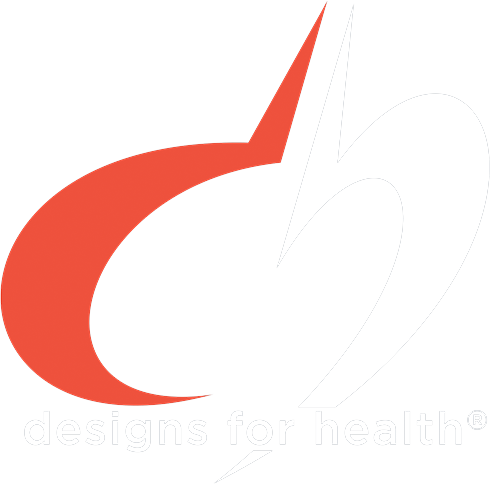


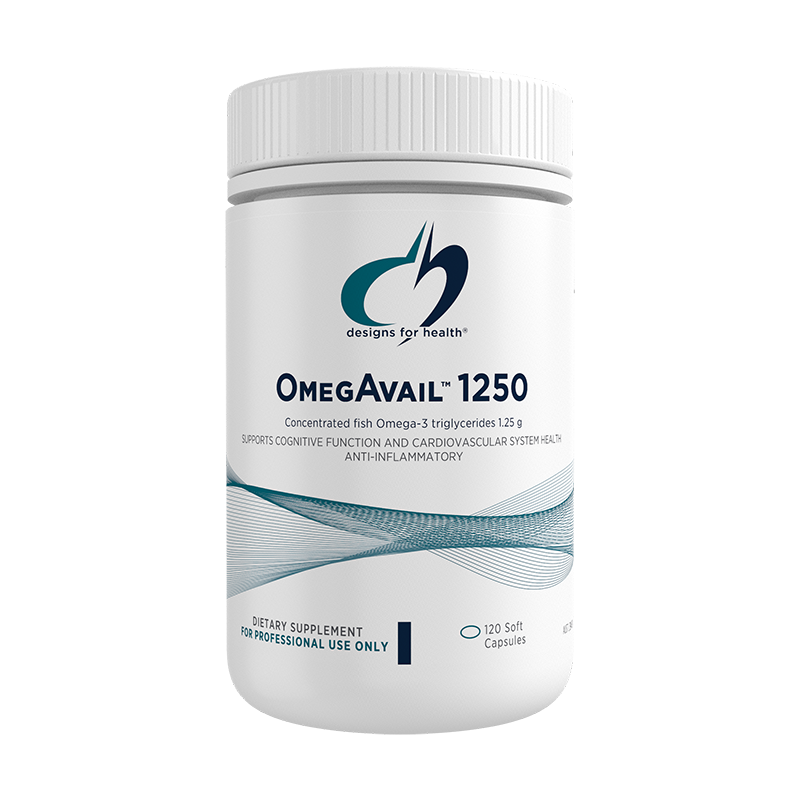
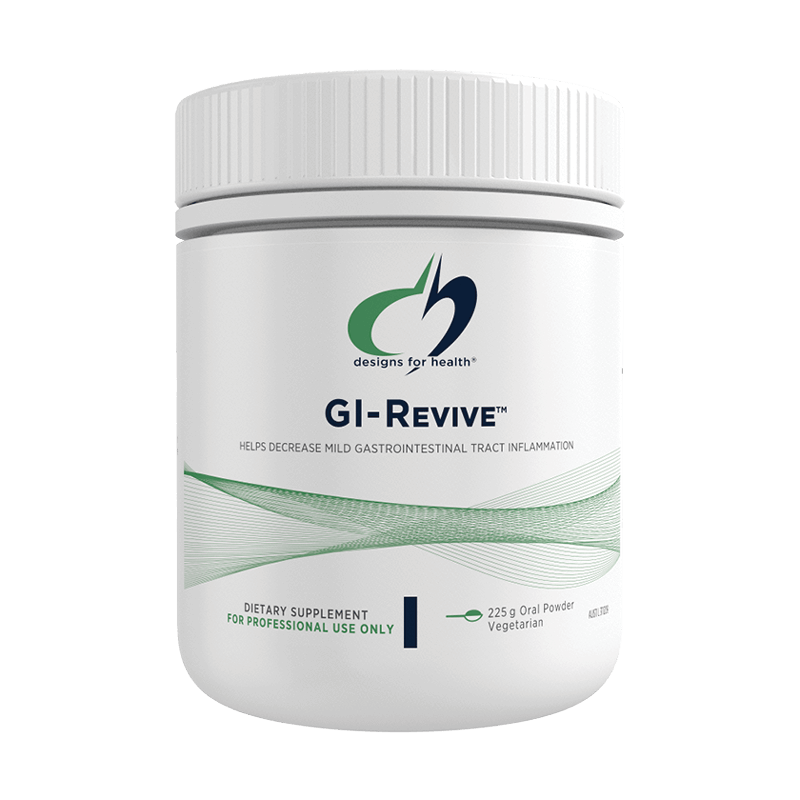
 Exploring Integrative Dentistry with Dr Ron Ehrlich
Exploring Integrative Dentistry with Dr Ron Ehrlich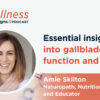 Essential Insights into Gallbladder Function and Care with Amie Skilton
Essential Insights into Gallbladder Function and Care with Amie Skilton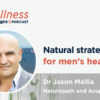 Natural Strategies for Men’s Health with Naturopath Jason Mallia
Natural Strategies for Men’s Health with Naturopath Jason Mallia